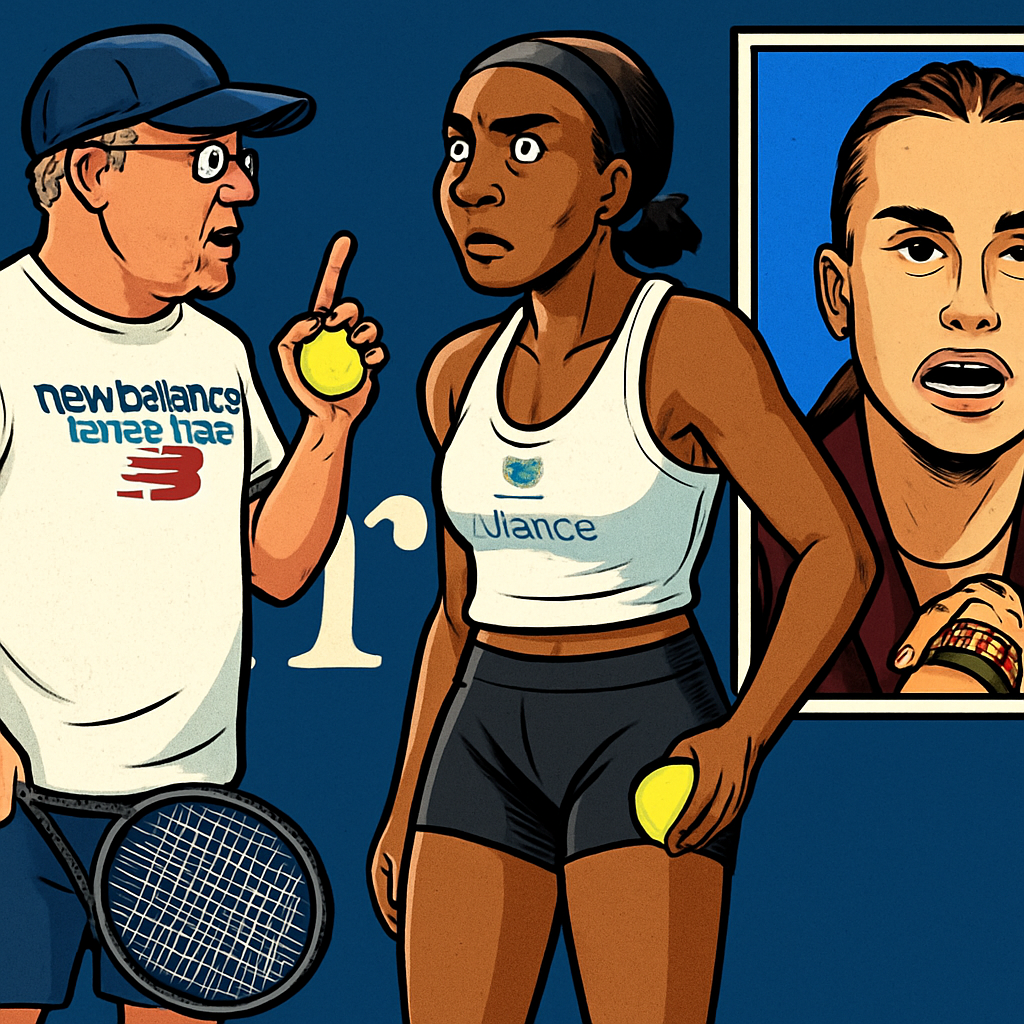The world of professional tennis is a complex web of player-coach relationships, where alliances shift as quickly as the momentum in a Grand Slam final. A recent coaching change has sent ripples through the WTA Tour, placing World No. 2 Aryna Sabalenka and her top rival, US Open champion Coco Gauff, in an intriguing new dynamic. The catalyst? Renowned biomechanics and serving specialist Gavin MacMillan.
The Architect of Sabalenka's Serve Rebuild
To understand the significance of this move, one must first appreciate the pivotal role MacMillan played in Sabalenka's career. In late 2021 and early 2022, the Belarusian powerhouse was in the throes of a now-infamous serving crisis. Her double-fault count skyrocketed, at one point reaching a staggering 21 in a single match, threatening to derail her immense potential. Sabalenka turned to MacMillan, the founder of the Sports Science Lab in Toronto, for a technical overhaul. His work was nothing short of transformative, rebuilding her serve from the ground up and restoring it as a devastating weapon.
This technical foundation was instrumental in Sabalenka's ascent to her first Grand Slam title at the 2023 Australian Open and her reign as World No. 1. Their collaboration, though not a full-time coaching arrangement, was a targeted and highly successful partnership. MacMillan’s expertise was the key that unlocked Sabalenka's confidence, turning a glaring weakness into one of the most feared serves on tour.
Gauff's Search for a Weapon Upgrade
On the other side of the net is Coco Gauff. The American phenom has already achieved superstar status, capturing the 2023 US Open title and establishing herself as a consistent force. However, in the relentless pursuit of improvement that defines modern tennis, Gauff and her team identified a clear area for growth: her serve. While reliable, it lacked the overwhelming power of peers like Sabalenka or Elena Rybakina. Enter Gavin MacMillan. Social media posts from the Sports Science Lab in recent weeks have confirmed that Gauff is now working with MacMillan to add more potency to her delivery.
This is a strategic move aimed at giving Gauff a critical edge in her burgeoning rivalry with Sabalenka. A bigger serve would not only earn her more free points but also put her on the front foot immediately in rallies. The potential benefits are immense:
- Increased ace count and unreturnable serves
- Softer returns from opponents, allowing for aggressive first strikes
- Greater confidence to hold serve under pressure, a key factor in tight matches
Sabalenka's Stoic Public Reaction
The tennis world immediately wondered how Sabalenka would react to seeing the architect of her greatest weapon now advising her biggest rival. When asked about the development ahead of the Madrid Open, the two-time Australian Open champion displayed remarkable professionalism and a team-first mentality. "I'm not really following this," she stated, downplaying the significance of the move.
She was quick to express unwavering confidence in her current team, led by coach Anton Dubrov. "I'm super happy with the team I have right now. I think my team is perfectly fine. I have everything I need to be in the shape I'm in right now and to keep improving. So I'm not really focusing on that," Sabalenka asserted. This public-facing stance emphasizes stability and a focus on her own process rather than external distractions.
Reading Between the Lines
While her words were diplomatically flawless, the subtext is undeniable. There is an inherent intimacy and vulnerability in the player-coach relationship, especially one that solved such a public and debilitating problem. To see that trusted consultant now working to improve the game of a direct competitor—someone she has faced in multiple high-stakes finals, including the 2023 US Open—must elicit complex feelings. Sabalenka's choice to vehemently reaffirm her commitment to her current team suggests a need to project strength and avoid any perception of concern.
This situation is not uncommon in tennis, but it is always delicate. Coaches are freelance operators who must work with multiple players to build a career. Yet, the transfer of specific, bespoke technical knowledge from one rival to another creates a unique psychological battlefield. Sabalenka's true feelings may be a mixture of understanding the business of coaching and a private, competitive desire to prove that her version of MacMillan's teachings is still superior.
The Rivalry Intensifies On and Off the Court
The Sabalenka-Gauff rivalry has quickly become one of the most compelling narratives in women's tennis. Their contrasting styles—Sabalenka's raw power versus Gauff's incredible speed and defense—make for thrilling contests. The head-to-head currently sits at 4-3 in Gauff's favor, but all their recent matches have been closely fought battles. This coaching subplot adds a fascinating new layer of gamesmanship and technical intrigue to their future encounters.
Every time they step on the court together now, the shadow of Gavin MacMillan will be present. The tennis world will be watching closely for any subtle changes in Gauff's service motion, its speed, and its placement. Conversely, all eyes will be on Sabalenka's serve, scrutinizing it for any signs of the past fragility that MacMillan once helped her conquer. It sets the stage for a high-stakes game of cat and mouse, where technical adjustments and mental fortitude will be tested simultaneously.
In the end, Aryna Sabalenka's public response was a masterclass in focusing on the controllables. By expressing full faith in her team and her own continuous development, she has effectively neutralized the narrative before it could become a distraction. The true test, however, will come the next time she faces Coco Gauff across the net, when the lessons from a shared coach will be put to the ultimate test under the bright lights of a Grand Slam court.

